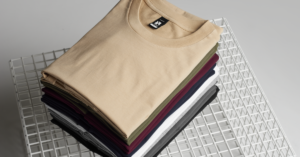Dutch clothing company G-star Raw has teamed up with marine pollution campaign group the Plastic Soup Foundation in an effort to prevent plastic pollution in the world’s oceans.
After their successful collection ‘Raw for the Oceans’ – which consisted of custom clothing made from ocean plastic waste, G-star is now looking to entirely replace all the polyester used for its collections with recycled plastic. By 2020, the company aims to use 100% recycled material as an alternative to conventional polyester.
G-star and Plastic soup are now trying to convince other companies to support the international ‘Ocean Clean Watch’ scheme, in order to tackle the release of plastic fibers and to find an innovative solution for this problem.
Since 2014 plastic bags in all G-star stores have been replaced by paper bags made from FSC certified paper, resulting in an annual reduction of more than 1.5 million bags (70.000 kg of plastic). Besides this, the company is also committed to eliminating industrial releases of hazardous chemicals in the environment and has set the goal to reach zero discharge of hazardous chemicals (ZDHC) from all products and and production processes by 2020.
Sustainability in fashion has been a lot in the media lately, thanks to some new initiatives gaining the support of some iconic brands and celebrities. At the 2016 Met gala, celebrities such as Emma Watson and Margot Robbie wore Calvin Klein collection to take the Green Carpet Challenge, supporting sustainable eco-friendly clothing. Watson’s look was made from Newlife fabric, a unique yarn produced from plastic bottles sourced, processed and spun into yarns exclusively in Italy.
Garment printing is a growing personalised clothing company and as we grow we realise that our impact on the environment is getting larger. We strive to be completely transparent in the way we operate and although we’re not a 100% ecological entity, we’re doing everything we can to contribute to a better environment by reducing the amount of harmful we use and by scaling-down the non-organic products that we print on.
In order to reduce the amount of harmful chemicals we use, we’ve replaced the use of plastisol (essentially a liquid PVC plastic which contains many unfriendly chemicals) by water-based inks which are not only more environmentally friendly but also offer better colour rendition. We’re very proud of this move and we hope our customers opt for this printing method over plastisol.
The ink we use is one thing, but what about the products we print onto? We’ve extended our product range of ecological and environmentally friendly clothing which now includes products made from cotton, Bamboo, Hemp and the beautifully soft, fine jersey Tencel. Tencel is botanical fabric produced from wood. It’s more absorbent than cotton, softer than silk and cooler than linen. All together, it is the perfect product for eco-friendly T-Shirt printing.
The products mentioned before are not only biodegradable, but they’re also environmentally friendly in their creation.





